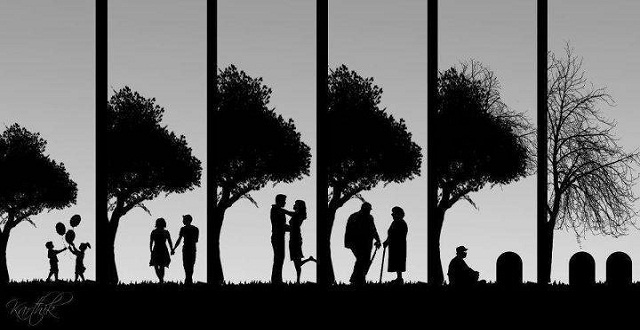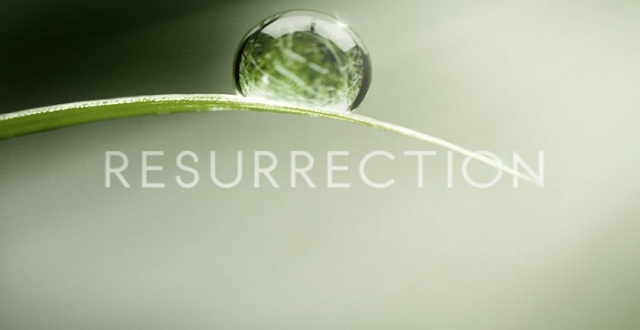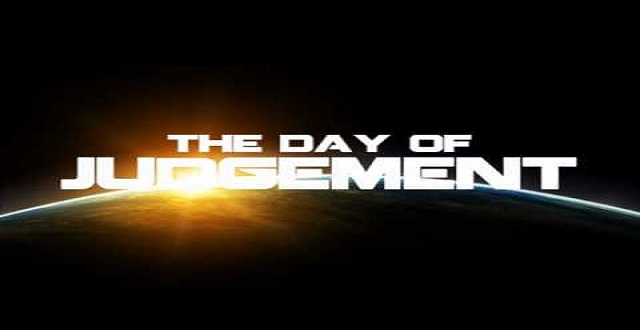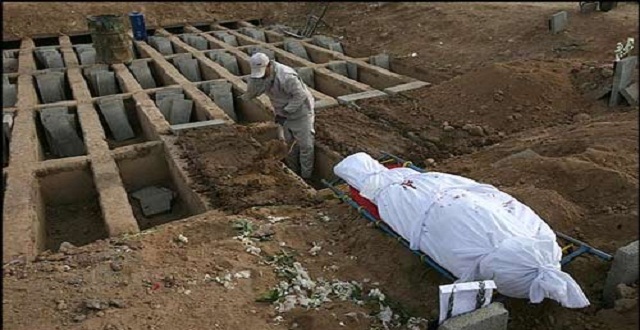The Physical-Spiritual Resurrection
Among the important questions which relates to the discussion of the Resurrection is, “Is the Resurrection only spiritual?” or does the body of an individual also appear in another world? and the human being take on the very form that he or she had in this world but in a higher and more elevated level? Continuing life in a new life?
Some of the ancient philosophers only believed in the spiritual Resurrection. They believed the body to be a composite, which is only with the human being in this world, and after death, becomes needless of that, and it is released and hurries towards the world of the spirit.
But in the view of the great Ulama of Islam, and many of the philosophers, is that Resurrection in both aspects, that is, spiritual and physical, takes place is correct that this body becomes dust and this dust spreads itself over the earth and will be lost but God is powerful enough to gather up all of these particles and at the Resurrection gather them together and put the clothes of a new life upon them. They interpret this as being a physical Resurrection because the return of the spirit is assured and as they are only referring to the return of the body, they have called it this.
At any rate, all of the verses of the Qur’an about the Resurrection — and these verses are many and varied — stress the physical Resurrection.
Qur’anic Proof of the Physical Resurrection
We have previously seen how a Bedouin came to the prophet with a rotten bone and asked the Prophet who would be able to enliven it. The Holy Prophet answered as God had answered, “That very person who on the first day created them, that same person who brought the heavens and the earth into being, and Who sends out flames from the inner part of a tree. “This can be found at the end of Surah Ya Sin.
The Holy Qur’an, in another verse, says:
“You will leave your tombs at the time of the Resurrection. “(Sura Ya Sin, 36: 51 and Sura al-Qamar, 54: 7)
And we know that the grave is the place of bodies which have become dust, not the place of the spirits.
Essentially all of the surprise of those who deny the Resurrection is in this that: Once we have become dust, how is it possible that all of this dust, which has dispersed throughout the world, be gathered together and once again receive life (Sura as-Sajdah, 32:10) and the Holy Qur’an answers them that God Who created the first time has the power to do this (Sura al-‘Ankabut, 29: 19)
The Bedouin had said, “Who will enliven this rotten gone?
All of these interpretations of the Qur’an and the verses show that the Prophet of Islam speaks everywhere about the physical Resurrection. The Holy Qur’an gives examples of this very physical Resurrection which takes place in world of plants and other kinds which we see. It explains it for them and brings the first creation as a witness.
Thus it is not possible that a person be a Muslim and not have the slightest knowledge of the Qur’an and the physical Resurrection and deny it because to deny the physical Resurrection from the perspective of the Qur’an, is to deny the principle of Resurrection.
Intellectual Proof
Beyond this, the intellect says that the spirit and body are two truths which are not separate from each other.
At the time of independence, the connection with each other finds nourishment with each other and they find completion and clearly require each other for the continuation of the eternal life.
Even though in the time of the intermediate world (the period between this world and the Resurrection), they are separate from each other, this is not always acceptable, just as the spirit without the body is not complete, the body without the spirit is not complete. The spirit gives the commands and is the factor for movement and without the command, and tools, there would be no command to follow or tools.
But because the spirit is at a higher level at the time of the Resurrection, its body must also be transformed and this will be. That is, the body of the human being at the time of the Resurrection will be empty of all imperfections of this world and deficiencies.
At any rate, the body and the spirit are born together and are transformed together. The Resurrection cannot have a physical or a spiritual quality.
In other words, the finding of the spirit and the body and the relation between the two of them with each other is another clear reason why the Resurrection must take place in both forms.
On the other hand, the law of justice says that the Resurrection must take place in both forms because if a human being is a sinner and the sins were committed with this body and spirit and if he or she did good deeds, it was with this body and spirit. Thus for the punishment or reward, both must be present for if only the body is present or only the spirit, justice will not be implemented.
Questions Concerning the Physical Resurrection
Scholars have expressed multiple questions on this issue which should be presented and considered.
1. According to the research undertaken by the natural scientists, the body of the human being in their lifetime takes on many changes or changes many times or goes through many changes. This happens every seven years in the human body. Thus throughout our lifetime, several times we change!
Now this question arises, among these changes, which form will be recreated and enlivened?
In response we say the last form. Just as we read in the above verse of the Holy Qur’an, God will transform those very bones which have rotted and become dust and this means that the last body will be returned.
But the important point is here that the last body contains all of the effects and particularities of the bodies which over time the human being has changed.
In other words, the bodies which gradually were changed will disappear, all of the special effects and particularities which exist are transferred to the next body.
Thus the last body inherits all of the qualities of this body and can, according to justice, accept punishment or rewards.
2. Some say that when we become dust and our dust becomes mixed with dust or fruit or trees, and as a result, we become part of the body of others, on the Day of Resurrection, what will happen.
Even though the answer to this question is very extensive, we will attempt to describe it very briefly here.
In answer to this question, we say that it is clearly the atoms which came from the dust of a person and entered the body of another which will return to the first form.
The only problem which remains is that the second body will be misshaped.
But it must be said that it will not be misshaped; it will be made smaller because all of these particles have been spread throughout the body and when taken from it, it will become smaller and thinner.
Thus neither does the first body no longer exist nor the second. The only thing which exists here is the smallness of the second body and this will not cause any problems because we know that at the time of the Resurrection, bodies of human beings will be completed and all deficiencies will be made up for in the form of new means and one’s personality will not be altered. Bodies which are smaller at the Day of Judgment in the world of perfection will be considered to be perfect.
Think and Answer
1. Is the life of the human being at the time of the Resurrection similar to life in this world?
2. Can we clearly understand the rewards and punishments of the Resurrection in this world?
3. Do the punishments of hell and the rewards of heaven only have a physical quality?
4. What is meant by the embodiment of the deeds? What does the Holy Qur’an say about this?
5. What difficulties does the belief in the embodiment of the deeds in the discussion of Resurrection answer?










